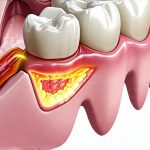Nighttime reflux, often experienced as heartburn or acid indigestion, disrupts sleep and diminishes quality of life for millions. It’s not simply an inconvenience; consistent nighttime reflux can erode tooth enamel, irritate the esophagus, and contribute to more serious long-term health concerns if left unaddressed. While medications are readily available, many individuals prefer exploring natural strategies to manage their symptoms before resorting to pharmaceutical interventions or as a complementary approach alongside prescribed treatments. This article delves into practical, evidence-informed methods for reducing nighttime reflux without relying on medication, focusing on lifestyle adjustments and behavioral changes that can significantly alleviate discomfort and promote restful sleep.
Understanding why reflux tends to worsen at night is crucial. During the day, gravity helps keep stomach acid down. When we lie horizontally, this natural defense weakens, making it easier for stomach contents to flow back up into the esophagus. Additionally, our bodies produce more stomach acid when digesting food, and eating close to bedtime can exacerbate the issue. Saliva also plays a role in neutralizing stomach acid – its production naturally decreases during sleep, further contributing to nighttime reflux symptoms. Recognizing these factors allows us to tailor strategies for prevention and relief that address the specific challenges of nocturnal reflux.
Dietary Modifications for Nighttime Relief
Diet profoundly impacts reflux frequency and severity. Certain foods are notorious triggers, while others can help soothe the digestive system. Identifying your personal trigger foods is key, as sensitivity varies greatly between individuals. Generally, minimizing consumption of high-fat foods – fried items, fatty meats, full-fat dairy – is beneficial, as they slow down digestion and increase stomach pressure. Similarly, spicy foods, citrus fruits, tomatoes and tomato-based products (sauces, ketchup), chocolate, peppermint, and carbonated beverages are common culprits that can relax the lower esophageal sphincter (LES) – the muscle that prevents acid reflux.
Beyond avoiding triggers, incorporating specific food choices can actively support digestive health. Foods rich in fiber, like oatmeal, whole grains, and vegetables, promote healthy digestion and regular bowel movements, reducing pressure on the stomach. Lean proteins are easier to digest than fatty meats. Ginger has anti-inflammatory properties and can aid digestion (though excessive amounts might worsen reflux for some). Chewing gum after meals – sugar-free, of course – stimulates saliva production, naturally neutralizing stomach acid. A mindful approach to eating is paramount: portion control, thorough chewing, and savoring each bite all contribute to better digestion. If you struggle with knowing what or how much to eat, consider exploring resources on how to eat for energy without further exacerbating gut issues.
Finally, timing plays a significant role. Avoid large meals within 2-3 hours of bedtime. If you experience nighttime reflux consistently, consider shifting your dinner earlier in the evening. A small, easily digestible snack before bed – like a handful of almonds or a banana – might be helpful for some, but it’s crucial to assess individual tolerance as even seemingly benign snacks can trigger symptoms in certain individuals. Hydration is also vital; drinking water throughout the day aids digestion, but avoid excessive fluid intake right before bedtime. Tracking progress can help you stay mindful of what triggers your reflux.
Optimizing Sleep Position and Bedroom Environment
Sleep position drastically impacts reflux severity. Lying flat allows stomach acid to flow more easily into the esophagus. Elevating the head of your bed by 6-8 inches is one of the most effective non-medication strategies for nighttime reflux. This can be achieved using bed risers placed under the legs at the head of the bed, or with a wedge pillow specifically designed for this purpose. Avoid simply piling up pillows – this doesn’t provide consistent elevation and can actually worsen symptoms by creating an awkward sleeping position.
Beyond elevation, sleeping on your left side is generally recommended. This positioning utilizes gravity to keep the LES above the level of stomach acid. Right-side sleeping may exacerbate reflux due to the anatomical position of the stomach relative to the esophagus. Creating a comfortable and relaxing bedroom environment also contributes to better sleep quality and potentially reduces stress – a known trigger for reflux. Ensure your bedroom is dark, quiet, and cool. Consider using blackout curtains, earplugs, or a white noise machine if necessary. Learning how to celebrate without triggering symptoms can also reduce anxiety around food and social events.
Lifestyle Adjustments and Stress Management
Maintaining a healthy weight is crucial, as excess abdominal fat puts pressure on the stomach, increasing the risk of reflux. Regular exercise – at least 30 minutes most days of the week – improves digestion, reduces stress, and helps maintain a healthy weight. However, avoid strenuous exercise close to bedtime, as this can temporarily increase intra-abdominal pressure. Smoking is a significant risk factor for reflux, as it weakens the LES. Quitting smoking offers numerous health benefits, including reduced reflux symptoms.
Stress significantly contributes to digestive issues, including reflux. Chronic stress increases stomach acid production and can disrupt normal digestive processes. Implement stress management techniques into your daily routine. These might include: – Meditation or mindfulness exercises – Deep breathing exercises – Yoga or tai chi – Spending time in nature – Engaging in hobbies you enjoy – Seeking support from friends and family
These practices help calm the nervous system, reducing overall stress levels and potentially minimizing reflux episodes. How to eat without anxiety is also an important skill to develop if you find yourself stressed around mealtimes. Furthermore, understanding how to introduce fats without bloating can help ensure your diet remains comfortable and balanced. Finally, remember that cooking for comfort doesn’t have to mean exacerbating symptoms; there are plenty of delicious options available! Remember that consistency is key – implementing these lifestyle adjustments gradually and consistently over time yields the most significant results. If symptoms persist despite these efforts, or if you experience more severe symptoms like difficulty swallowing, chest pain, or unexplained weight loss, consult a healthcare professional to rule out underlying medical conditions and discuss appropriate treatment options.


















